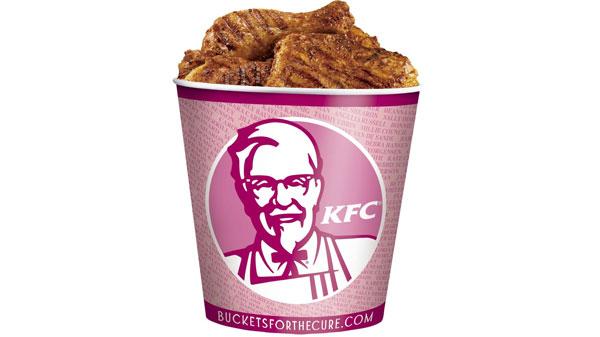Breast Cancer Month Overshadowed by ‘Pinkwashing’
By Angela Mulholland | Окт 15, 2010

Every October, stores become a sea of pink as shelves fill with products adorned with pink ribbons or altogether repackaged in pink, as part of Breast Cancer Awareness Month. It’s all seen as a feel-good win-win: Consumers get the products they want while helping out a great cause. What could be wrong?
Lots, say groups and breast cancer patients who are sick of companies trying to push shoppers into thinking that pink candies, pink toasters and pink spatulas will make a dent in curing cancer.
It’s bad enough, they say, that corporations are profiting off the pink ribbon – and the disease that left them feeling anything but pink. It’s worse when companies “pinkwash”: hitching a ride on the pink ribbon bandwagon to sell products actually linked to cancer.
In 2002, the Breast Cancer Action advocacy group launched the “Think Before You Pink” campaign, warning shoppers to ask questions about what their money is funding.
They successfully went after pink-ribbon sponsor Yoplait, and later Dannon, for using milk from cows treated with bovine growth hormone (rBGH), a hormone that’s been linked in some studies to breast cancer. Both companies later bowed to consumer demands and stopped using milk with the hormone.
This year, the Think Before You Pink campaign is targeting alcohol companies that urge people to “pink their drink” because, they say, these drinks are only adding to the breast cancer problem. Alcohol has been linked to breast cancer in a number of studies, and the Canadian Cancer Society advises that even one drink a day on average can increase the risk of breast cancer.
Samantha King, an associate professor of physical and health education and women’s studies at Queen’s University, in Kingston, Ont., has also raised a stink about pink. In 2006, she wrote “Pink Ribbons Inc.,” one of the first critical looks at how breast cancer has been co-opted by corporate ad men and women.
Every October, King says she sees plenty of examples of “pinkwashing,” but this year, three questionable campaigns stand out for her.
One is the KFC Buckets for a Cure campaign in the U.S., in which 50 cents from every bucket of fried chicken is going to Susan G. Komen for the Cure.
“KFC sells products that are salt- and fat-laden, and injected with hormones, and they are the subject of a lawsuit in California about a potential carcinogen that they use in the processing of their chicken,” King tells CTV.ca.
Read the rest here: http://www.ctv.ca/CTVNews/Health/20101008/pinkwashing-pink-ribbon-101009/















